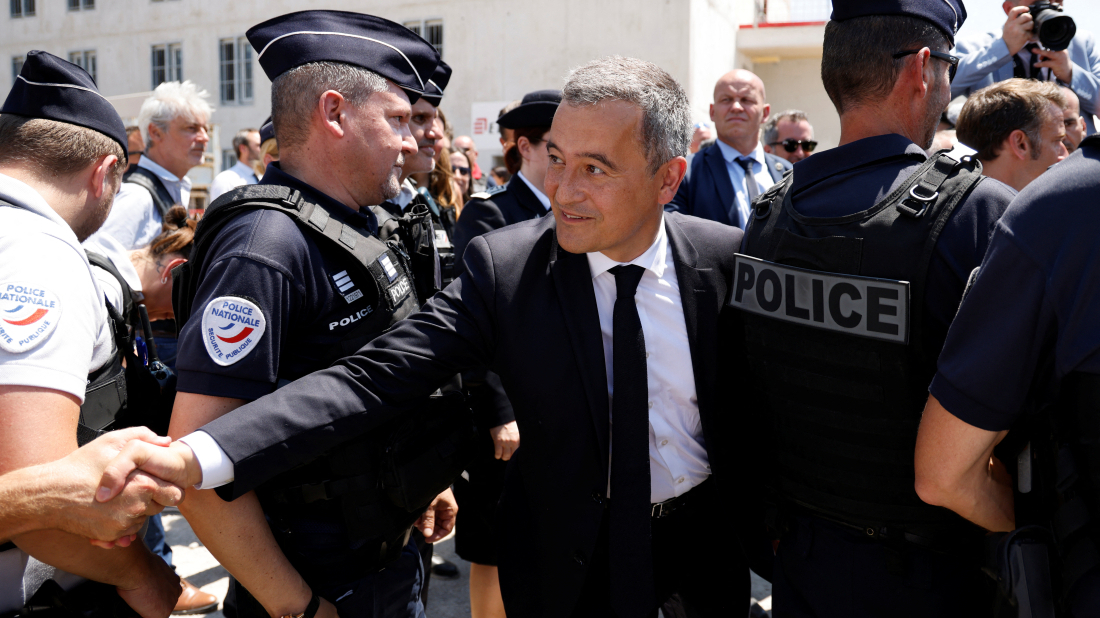live Qatar shoots down Iranian jets: All the latest news on the Iran strikes
The Middle East crisis intensifies after the deadly attack on the compound of the Supreme Leader of Iran Ali Khamenei on Saturday t...

France will open a new high-security prison deep in the Amazon jungle of French Guiana, aimed at detaining drug traffickers and radicalised inmates.
The €400 million facility, announced by Interior Minister Gérald Darmanin, will be located in Saint-Laurent-du-Maroni and could open by 2028.
Darmanin said the prison is designed to “incapacitate the most dangerous drug traffickers” at the source of the supply chain and sever their links with criminal networks in mainland France. The site will include a strict regime and a special wing for high-risk prisoners.
The decision follows recent violent incidents linked to gang activity across France, including attacks on prisons. Officials say the remote location will help prevent inmates from maintaining contact with outside networks, a persistent issue in French jails.
French Guiana, a French overseas region on the northeastern coast of South America, is a known route for drug mules traveling from Brazil and Suriname. The new prison is part of broader efforts by France to tighten its grip on organised crime, including new legislation and expanded prosecutorial powers.
Saint-Laurent-du-Maroni, the chosen location for the prison, is the second-largest city in French Guiana with over 50,000 residents. France has a long history of using this area as a remote prison site. From 1858 until 1946, it served as the main arrival point for prisoners sent to the notorious Devil’s Island penal colony, known for its harsh conditions and isolation deep in the jungle. The town was established around this prison complex, designed to keep inmates cut off from the outside world. The dense Amazon rainforest and the Maroni River acted as natural barriers to escape, making it extremely difficult for prisoners to flee or maintain contact with criminal networks. This legacy of incarceration and isolation continues to influence why the new high-security prison is planned for this location.
However, the announcement of the prison’s high-security wing, which will include 60 spaces—15 reserved for Islamic militants—has sparked strong opposition in French Guiana. The wing is part of the larger €400 million project originally announced in 2017, aiming to hold 500 inmates.
Residents and local officials, including Jean-Paul Fereira, acting president of French Guiana’s territorial collective, expressed outrage that the plans were revealed without prior consultation. Fereira described the move as disrespectful and insulting, highlighting that the original 2017 agreement focused on reducing overcrowding rather than housing radicalized individuals from mainland France.
Jean-Victor Castor, a local member of parliament, called the decision “an insult to our history, a political provocation and a colonial regression,” demanding France withdraw the project. French Guiana’s history as a penal colony—once holding political prisoners such as Alfred Dreyfus on Devil’s Island—adds weight to the local resistance against turning the region again into a site for high-security detention.
Follow the latest developments and global reaction after the U.S. and Israel launched “major combat operations” in Iran, prompting retaliation from Tehran.
Saudi Arabia’s state oil giant Saudi Aramco closed its Ras Tanura refinery on Monday following an Iranian drone strike, an industry source told Reuters as Tehran retaliated across the Gulf after a U.S.-Israeli attack on Iranian targets over the weekend.
The Kremlin is utilising the recent United States and Israeli military strikes on Iran to validate its ongoing war in Ukraine. Russian officials are pointing to the escalation in the Middle East as evidence that Western nations do not adhere to international rules.
The Middle East crisis intensifies after the deadly attack on the compound of the Supreme Leader of Iran Ali Khamenei on Saturday that killed him, other family members and senior figures. Iran has launched retaliatory strikes on U.S. targets in the region.
Ayatollah Alireza Arafi has moved into a pivotal constitutional role following the death of Supreme Leader Ayatollah Ali Khamenei, becoming the clerical member of Iran’s temporary leadership council under Article 111 of the Constitution of the Islamic Republic of Iran.
The U.S.-Iran crisis has entered its third day, with further strikes reported across the Middle East and the death toll rising. Oil prices have surged to levels last seen during the Covid-19 pandemic, raising fears of economic disruption and higher prices worldwide.
The UK said it's allowing the U.S. to use its bases for defensive strikes against Iran amid escalating missile attacks, after a suspected drone strike hit a British airbase in southern Cyprus, causing limited damage.
The Kremlin is utilising the recent United States and Israeli military strikes on Iran to validate its ongoing war in Ukraine. Russian officials are pointing to the escalation in the Middle East as evidence that Western nations do not adhere to international rules.
European Union stands with its member states in the face of any threat, EU Commission President Ursula von der Leyen said in response to the drone strike that hit Britain's Royal Air Force base of Akrotiri in southern Cyprus overnight.
Start your day informed with AnewZ Morning Brief. Here are the top news stories for the 27th of February, covering the latest developments you need to know.
You can download the AnewZ application from Play Store and the App Store.

What is your opinion on this topic?
Leave the first comment